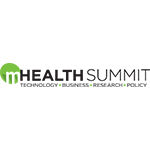How Machine Learning Could Shape The Health Industry
Physician burnout is a very real problem in today’s society. You will often hear doctors brag about how little sleep they got, how much coffee they had to drink, or how long their shift was. While this is passed off as a light-hearted joke most of the time, this is a real problem that needs to be addressed. Any good doctor will tell you that sleep hygiene is one of the most important factors in your overall well-being. So why does society not afford physicians the ability to follow their own advice? Fortunately, machine learning and artificial intelligence may have some solutions to the burnout issue that has been plaguing the healthcare industry
The Cost of Burnout
Healthcare providers are responsible for some of the most important jobs in our society. Without them, there would be no way for individuals to receive the treatment that they need. Regardless of your background, every single person needs healthcare. Unfortunately, because of the pressure to perform some of the most high-stakes jobs with little time to rest and take care of themselves, healthcare providers from doctors, to nurses, to lab technicians, to pharmacists are all experiencing a high amount of burnout. Experiencing mental and physical exhaustion from lack of rest, physicians are more prone to make mistakes on the job or even fall asleep. This can highly impact the quality of care that patients receive, resulting in memory or performance issues that can lead to things like misdiagnosis, incorrect dispensing of medication, mistakes during procedures, and other detrimental errors being made on the job. However, it isn’t just patients that face the disastrous effects of their providers’ exhaustion. The suicide rate among healthcare professionals is at an all-time high, placing doctors as the number one highest-risk job for suicide. It’s clear that something needs to change in how healthcare professionals are treated, but what can we do?
The Introduction of Machine Learning
Neural network chips are hardware that has been designed to mimic the way human brains learn using mathematical formulas, enabling them to perform previously human-led functions such as training and inference. This allows for tasks that were previously extremely time-consuming to be completed nearly instantly with the help of artificial intelligence. In healthcare, this means that machine learning can relieve healthcare providers of many time-consuming tasks that were previously left up to them, oftentimes while they are off the clock, such as data input and recording information. This way, they can spend more time focusing on caring for both their patients and themselves with the extra time afforded to them. With the introduction of machine learning, the high expectations that are placed on healthcare workers is somewhat decreased, and in turn so is the high rate of burnout.
A Healthy Balance
Artificial intelligence and machine learning have already advanced so many fields to the point where human involvement has become almost obsolete. Logically, you would think that it would be able to do the same for the medical field. Unfortunately, it isn’t quite as simple as that. There are many aspects of healthcare that cannot be taken over by machine learning such as bedside manner and human creativity. This is a good thing, though, as machine learning can relieve some of the pressure put on healthcare workers without completely putting them out of their jobs. In addition, patients will still receive the important human element that healthcare often requires.
It is clear that burnout is an issue that is highly impacting healthcare in our society. Healthcare providers have been expected to shoulder an incredible amount throughout all of history. Fortunately, artificial intelligence and machine learning have been able to relieve some of this stress and pressure while still leaving key parts of healthcare jobs to human providers. While artificial intelligence has been extremely impactful in helping with physician burnout, the future of healthcare exists at a healthy intersection between humans and machines.


























